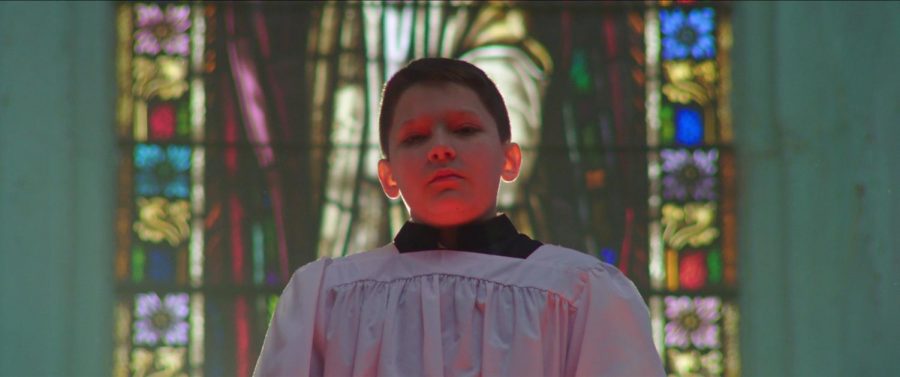Review: ‘Procession’ is a meta masterwork on trauma
Robert Greene’s portrayal of the painful processing of trauma makes for a profound piece that shows the difficulty and necessity of storytelling.
“Procession” is a 2021 documentary film directed by Robert Greene. It comprises six short films made by men who were sexually abused by priests. (Image courtesy of Netflix)
December 6, 2021
Content warning: This article contains descriptions of sexual assault.
Meta and hybrid documentary filmmaking has grown in popularity in recent years. Last year’s “Dick Johnson is Dead” (dir. Kirsten Johnson) and “Still Processing” (dir. Sophy Romvari) both focused on filmmakers processing their own grief, using the documentary genre as a means of commenting on the filmmaking process. With his latest documentary, Robert Greene innovates on their formula, this time looking beyond just a single filmmaker, and the results are deeply moving.
“Procession” was conceived at a press conference in Kansas City, Missouri, where Greene witnessed a series of case dismissals pertaining to sexual assault by priests. After hearing a group of survivors express their frustration at being denied justice, Greene sought the men out for a documentary project. Stemming from theories of drama therapy, Greene offered six men the resources to write and direct scenes connected to their trauma. Each man’s process is shown before their final cuts are presented as part of the film, resulting in sections that provide powerful insights into working through trauma and the storytelling process.
Greene uses the documentary genre to portray the survivors’ stories with a powerful sense of transparency. After repressing their stories for years, these men lay bare the worst moments in their lives. Their scenes recreate their experiences in excruciating detail, including filming at the churches where the events took place. Dealing with resurfaced trauma is as hard for the person reliving the experience as it is for their fellow survivors. When not acting in each other’s scenes, they stand together behind the camera, quick to provide emotional support at a moment’s notice.
Greene separates himself from other abuse story documentaries by not portraying these men as victims. In one early scene, a man preparing for his scene calls on the rest of the group to indulge in collective grief: If he’s going to go through with this, he can’t be another guy crying in the corner for people to pity. He says wants the group to look and feel “like the Avengers,” a goal that fills them with courage as they tackle their pasts head-on in scene after scene. The film is emotionally challenging in that way for the viewer, let alone for the men on screen.
I’m hesitant to get into the details of the scenes for any of the men because that would undermine the point of the film. “Procession” is about six men taking ownership and power over the pain that was inflicted on them and has haunted them their whole lives. The way each of them find their own unique cinematic way to present their scene is inspiring. The last scene in particular, which cuts together every man’s experience, heart-wrenchingly ties the film together in a way that simultaneously expresses the lack of closure these men have from the justice system while also showing how they’ve grown as a result of the film.
Though these men didn’t get the justice they deserved from the legal system, their scenes offer a catharsis that demonstrates the power of storytelling. Reliving trauma is not easy, for these men more so than most, but it serves the necessary function of connecting people — not just these men, but this viewer as well.
A version of this story appeared in the Dec. 6, 2021, e-print edition. Contact Sebastian Zufelt at [email protected].



























































































































































